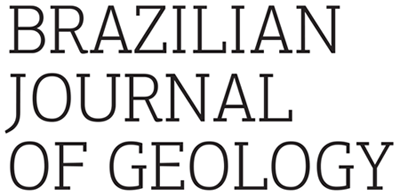Abstract
The volcanic Trindade Island is a remote Brazilian offshore territory in the South Atlantic, located ca. 1.140 kilometers east of the southeast coast of Brazil. The island’s permanent exposure to geological hazards requires assessment. However, the lack of erosion and landslides temporal data impedes predictive geohazard analyses. Therefore, we compiled pre-existing data from nautical charts and surveyed the surface terrain on Trindade Island to generate Digital Terrain Models (DTMs) and comparative accuracy analyses. The DTM based on pre-existing data shows the lowest accuracy (root mean square error - RMSE: 12.3 m) yet is adequate for regional studies. In contrast, the DTM developed from real-time kinematic global navigation satellite systems (RTK-GNSS) has the highest vertical accuracy (RMSE: 0.48 m), but spatial variability of ground elements was underestimated and limited to meter-sized (and larger) elements. The DTM obtained using the unmanned aerial vehicle (UAV) with ground control points (GCP), on the other hand, presented lower accuracy (RMSE: 2.37 m) than the RTK-GNSS model but still allowed observation of centimetric (and larger) ground features. For geohazard assessment on Trindade Island, models that allow fine-scale studies are needed. A UAV with GCP provides such standards and proved to be the most viable option in remote and complex sites as well. Hence, this study, the first to allow multi-temporal analysis of geohazard assessment on Trindade Island, offers a viable solution for similar analyses in other remote locations.
KEYWORDS:
geotechnology; geohazard assessment; digital terrain model; volcanic landscape; South Atlantic Ocean

 Thumbnail
Thumbnail
 Thumbnail
Thumbnail
 Thumbnail
Thumbnail
 Thumbnail
Thumbnail
 Thumbnail
Thumbnail
 Thumbnail
Thumbnail
 Thumbnail
Thumbnail
 Thumbnail
Thumbnail
 Thumbnail
Thumbnail
 Thumbnail
Thumbnail
 Thumbnail
Thumbnail
 Thumbnail
Thumbnail
 Thumbnail
Thumbnail
 Thumbnail
Thumbnail
 TC: Trindade Complex; MVF: Morro Vermelho Formation.
TC: Trindade Complex; MVF: Morro Vermelho Formation.

 Source: modified from
Source: modified from 

 SfM: Structure from Motion; GCP: Ground Control Points; DTM: Digital Terrain Model.
SfM: Structure from Motion; GCP: Ground Control Points; DTM: Digital Terrain Model.







